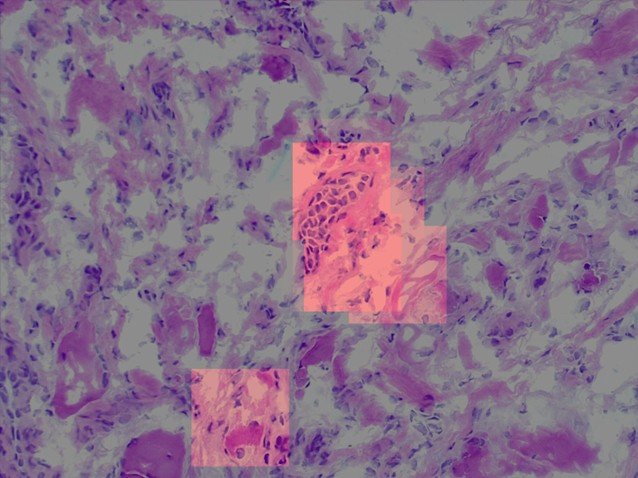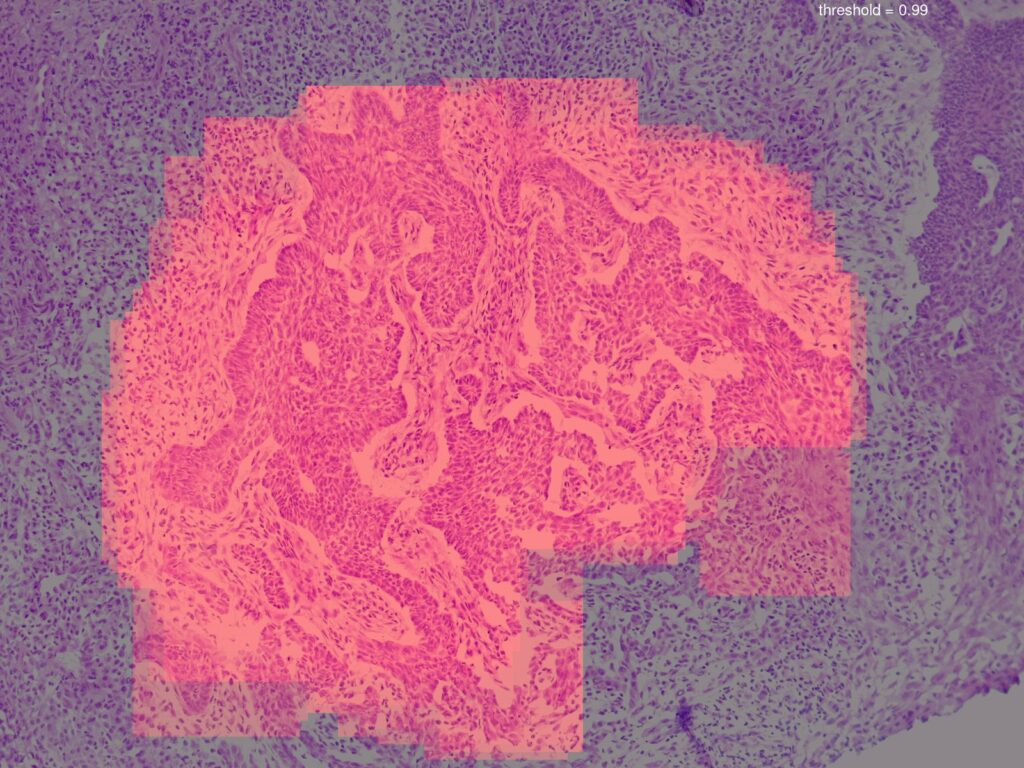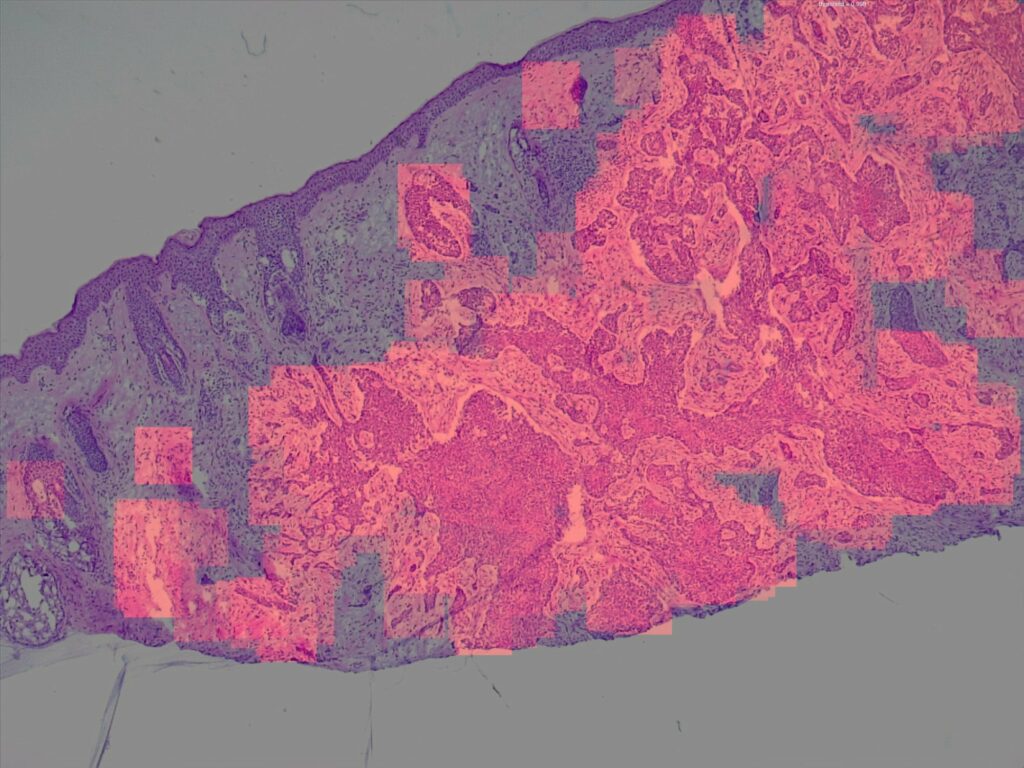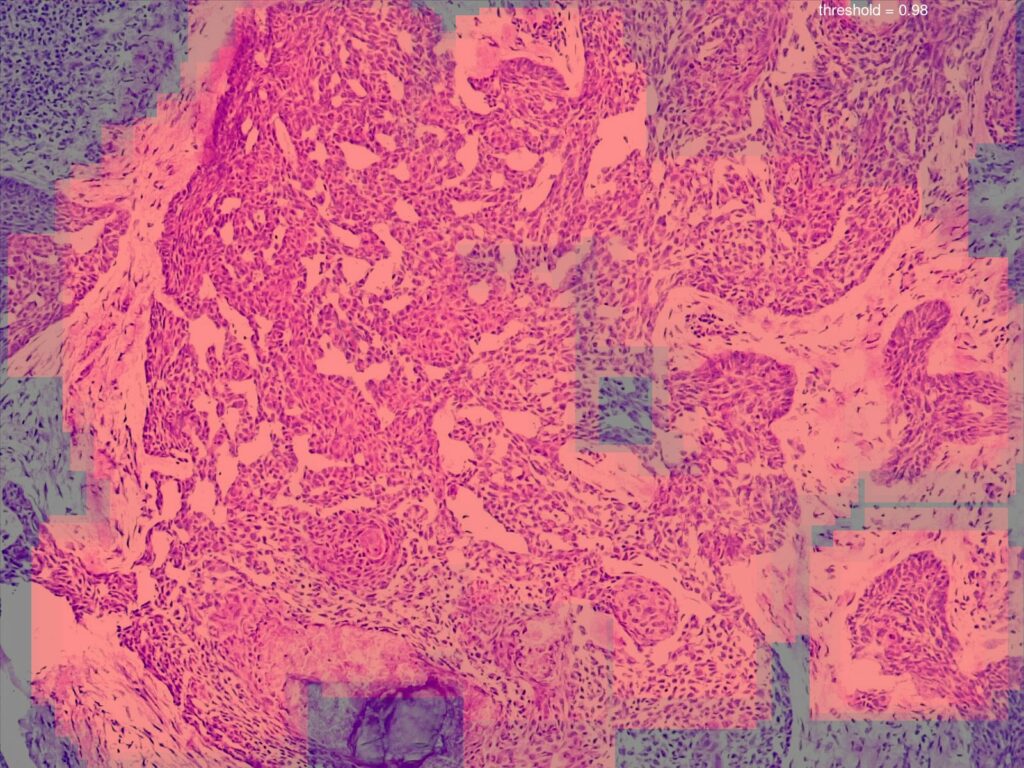Advancing Skin Cancer Care Through Innovation and Research
At Skintel we don’t just provide basic skin cancer care, we are constantly striving to improve outcomes not just for our patients, but for everyone. That is why we are constantly following the latest international developments, but we are also involved in our own leading-edge research.
We are developing an artificial intelligence algorithm, based on modern computer vision methods to assist with Mohs surgery.
What is artificial intelligence, machine learning and deep learning?
Artificial intelligence (AI) is the simulation of human intelligence by machines, especially computer systems. Whilst the term “artificial intelligence” has been loosely used by the general public and Hollywood, in medicine its application has increased significantly as a result of recent advances in AI research, the massive amounts of digital data, and modern, powerful computers.
What are the types of artificial intelligence?
Machine learning is a special branch of artificial intelligence that uses algorithms to ‘learn’ data to allow computer algorithms to improve performance over time.
Deep learning is a specialised type of machine learning that is based on artificial neural networks that mimic the learning process of the human brain. Leveraging from improved computational powers, deep learning has improved on the traditional machine learning’s capability to learn on its own from previous data and improves performance over time.
Convolutional Neural Networks (CNN) are a special type of deep learning technique, most suitable for computer vision tasks with a variety of applications, such as self-driving cars. In dermatology, AI models based on CNNs have been applied to many diagnostic tasks coupled with digital images and achieved accuracy comparable to specialist dermatologists.
Convolutional Neural Networks (CNN)
CNN’s are most applicable to dermatology as they consist of multiple layers that process and extract features from images and objects.

Using artificial intelligence models to help diagnosis in Mohs surgery
The goal of our research is to improve the diagnostic accuracy of Mohs surgery. Mohs surgery is the gold standard surgical technique for the treatment of skin cancers that are particularly on the face, head, and neck. It’s the most accurate technique that results in the highest cure rates and the best cosmetic outcomes. While Mohs surgery is very accurate, exceeding 99%, it is still not perfect.
At Skintel, we want to make Mohs surgery even better as we are always striving for 100%. Mohs surgery involves microscopic analysis of serial frozen sections of the skin cancer as it is removed from the body. This is the key component of what makes Mohs surgery so powerful. You can read about Mohs surgery in our article dedicated to this topic here.
While Mohs surgery is highly accurate, nothing in medicine is 100%. Analysing pathology specimens is not an exact science. Most Mohs surgery cases are straightforward, however, there are times when this can be challenging even for the best Mohs surgeons. This is where our artificial intelligence research comes in.

What is the team researching?
There are limited studies on the performance of AI, specifically computer vision when applied to Mohs slide images. Mohs frozen section analysis is particularly challenging due to the technique of tissue preparation used and the limited number of Mohs surgeons available to interpret these slides. The team at Skintel are hoping that research into this area can one day aid the Mohs surgeon and further improve the diagnostic accuracy of Mohs surgery.
Examples of the AI in action



Our results
In some areas, the AI research team were able to achieve accuracy exceeding 99% for infiltrating BCCs – one of the most challenging types of BCC. However, it still needs a lot of work and they need your help to make it even better.
The Research Team
Collaborators
- Dr Frank Lin (Garvan Institute of Medical Research)
- Dr Sophie Lim (Alfred Health)
References
- Ramesh, A., Kambhampati, C., Monson, J., & Drew, P. (2004). Artificial intelligence in medicine. Annals of The Royal College of Surgeons of England, 86(5), 334-338. doi: 10.1308/147870804290
Related Posts
-
Artificial Intelligence for Mohs Surgery
Our artificial intelligence (AI) platform is already more than 99% accurate. We want to improve outcomes not just for our patients, but for everyone! […]Read more
-
The Carbon Impact of Skin Cancer Surgery
Our research into the carbon footprint of dermatologic surgery has allowed us to identify where we can reduce the amount of carbon used in our clinic.Read more
-
Predicting the Risk of SCC Recurrence
Developing an algorithm for predicting the risk of an SCC recurrence.Read more



